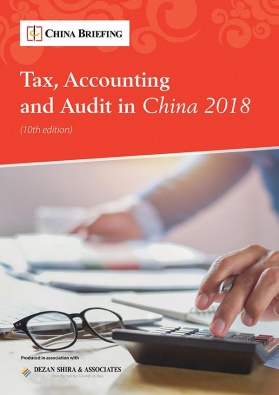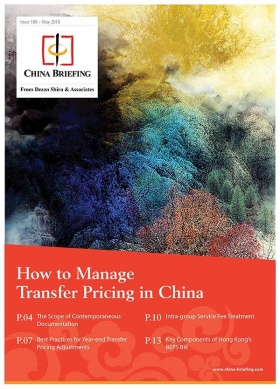Dongguan’s Incentives for the Private Sector: Additional Measures Announced
Dongguan, an industrial hub in the province of Guangdong, recently introduced a series of new measures aimed to stimulate the private economy.
Called the Several Measures to Further Support the High-Quality Development of the Private Economy, the new plan consolidates 50 initiatives, broken down into 160 measures that will work to boost innovation and entrepreneurship, open up market access for further investment, reduce red tape, and create a more profitable environment for private businesses.
Moving up the value chain
This marks the latest of a series of policies released by the local government aimed at transitioning the city from low-value manufacturing industries to high-tech and innovation industries, including a one-off RMB 2 million (US$306,370) to 100 million (US$15.32 million) incentive pay, announced earlier this year, for companies that relocate their headquarters to Dongguan – depending on the size and nature of their investment.
Against a backdrop of rising labor costs and trade war tensions, the city being traditionally dependent on manufacturing and exports, has been put in a difficult position.
This explains Dongguan’s continued efforts and motivation to stimulate its private economy; it also demonstrates that Dongguan will be well-positioned to benefit from the spillover effects from the Greater Bay Area and to move up the value chain.
The Dongguan government has invested a great deal in its initiatives to attract private business – committing RMB 270 billion (US$38.8 billion) to build infrastructure projects over the next three years.
This time round, the government has committed to a further RMB 10 billion (US$1.44 billion) to give force to the 160 measures proposed, in hopes of stimulating the market economy for private companies.
What do Dongguan’s policies mean for investors?
Stimulating ‘innovation’ is the underlying theme of Dongguan’s new policies, with 136 of the 160 initiatives making reference to boosting innovation – 94 of these are newly introduced, while the remainder 42 have been revised from existing policies.
Specifically, the Dongguan government is making a concerted effort in 10 key areas:
- Strengthening the domestic and foreign market;
- Reducing tax, labor, operation, and land costs for private enterprise;
- Alleviating the difficulty of financing private enterprises;
- Expanding investment by further relaxing market access;
- Increasing the supply of land;
- Promoting the use of more innovative techniques and technology within private businesses;
- Supporting the overall growth and expansion of businesses;
- Improving the quality of government service;
- Stimulating entrepreneurship; and
- Enhancing political-business ties.
Collectively, these policies are expected to provide Dongguan’s private economy with a stimulus of RMB 50 billion (US$7.2 billion) through the period 2018-2020.
The most significant policies include: reducing operation costs, offering discounted insurance plans, and paying 10 percent less on electricity bills.
These should save businesses RMB 30 billion (US$4.33 billion), RMB 3.26 billion (US$470 million), and RMB 1.7 billion (US$250 million), respectively.
About Us
China Briefing is produced by Dezan Shira & Associates. The firm assists foreign investors throughout Asia and maintains offices in China, Hong Kong, Indonesia, Singapore, Russia, and Vietnam. Please contact info@dezshira.com or visit our website at www.dezshira.com.
- Previous Article How to Get a Shenzhen Hukou
- Next Article China’s Greater Bay Area: From Factory of the World to Mega Tech Hub








